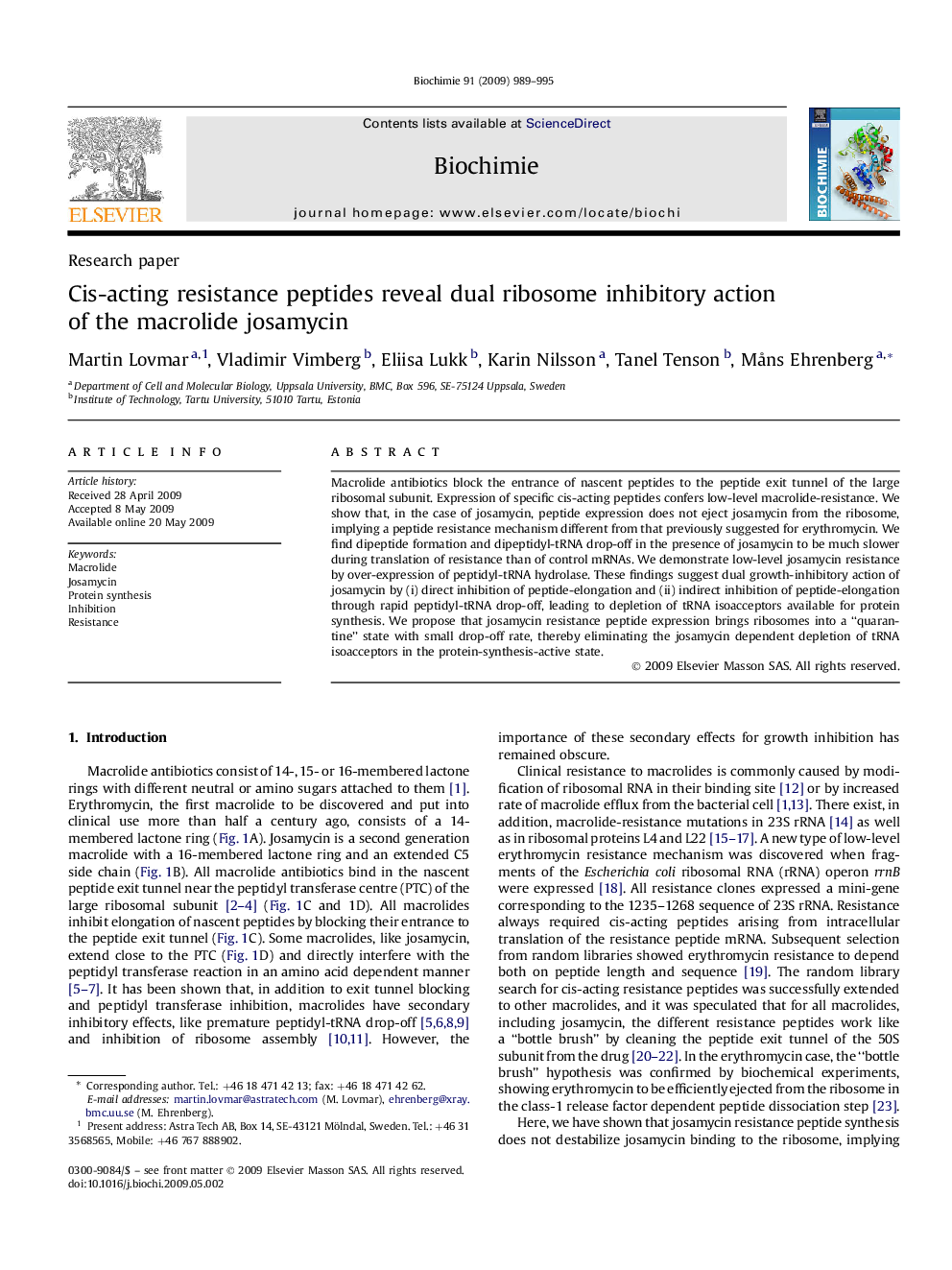| Article ID | Journal | Published Year | Pages | File Type |
|---|---|---|---|---|
| 1952839 | Biochimie | 2009 | 7 Pages |
Macrolide antibiotics block the entrance of nascent peptides to the peptide exit tunnel of the large ribosomal subunit. Expression of specific cis-acting peptides confers low-level macrolide-resistance. We show that, in the case of josamycin, peptide expression does not eject josamycin from the ribosome, implying a peptide resistance mechanism different from that previously suggested for erythromycin. We find dipeptide formation and dipeptidyl-tRNA drop-off in the presence of josamycin to be much slower during translation of resistance than of control mRNAs. We demonstrate low-level josamycin resistance by over-expression of peptidyl-tRNA hydrolase. These findings suggest dual growth-inhibitory action of josamycin by (i) direct inhibition of peptide-elongation and (ii) indirect inhibition of peptide-elongation through rapid peptidyl-tRNA drop-off, leading to depletion of tRNA isoacceptors available for protein synthesis. We propose that josamycin resistance peptide expression brings ribosomes into a “quarantine” state with small drop-off rate, thereby eliminating the josamycin dependent depletion of tRNA isoacceptors in the protein-synthesis-active state.
